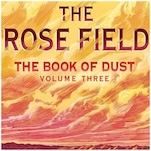Five Books to Relieve Your Financial Guilt

Finances fray our nerves and shadow our souls. As flies caught in an international web of commerce, few things can make us feel as powerful or as pathetic as our bank balance. So if your parents just paid your rent again or you just can’t reconcile those little numbers on your ATM receipt, these books’ torturous relationships with cash will leave you feeling better about your own (legal) tender issues.

 1. The Destroyers by Christopher Bollen
1. The Destroyers by Christopher Bollen
Bollen’s exceptional thriller follows two young men of wealth, one formerly so and one still fabulous, and neither of them are happy. Most of their acquaintances in this glittering world, in all economic strata, are similarly discontent. The Destroyers’ opulent island setting offers them escapism at its finest, but being whipsawed by refugees and the Greek economic collapse further belays the old saw that money can’t fix everything (just, you know, your rent and debt and bills).

 2. How to Murder Your Life by Cat Marnell
2. How to Murder Your Life by Cat Marnell
Marnell’s money interactions are unique on this list for being real. In her memoir, she’s refreshingly candid about her wealthy, turbulent upbringing. Her parents’ careers not only financed the prescriptions she needed for academic/work success—the very same drugs to which she found herself addicted—but also the private school educations and the living situations that made her magazine lifestyle possible. Through it all, Marnell works maniacally, putting in marathon hours in tedious intern positions and low-paying editorial gigs, shattering two myths at once: the one that says addicts are adrift losers, and the one that says hard work always equals success.

 3. Less Than Zero by Bret Easton Ellis
3. Less Than Zero by Bret Easton Ellis
Ellis’ dissociative young characters operate with a detached cool and explicit display of wealth perfect for their ‘80s setting. Your own fraught relationship with money will pale in comparison to Clay and his sun-kissed clique, whose unhappiness seems directly proportional to their parents’ wealth. Moving like shades through a Dantean world of frigid manses and lambent pools, their lives are equal parts luxury and anomie.

 4. The Secret History by Donna Tartt
4. The Secret History by Donna Tartt
When youth without wealth are tossed into an atmosphere richer than their own, they are faced with two choices: become wealthy on their own, or pretend. Guess which one college student Richard choses? Arriving at a Vermont liberal arts college (much like the one where Tartt and Ellis went to school), Richard betrays his identity to join a beguiling group of Classics students. Discrepancies between bank accounts cause friction among them, acting as a microcosm for society as a whole. And Tartt’s liberal arts setting speaks to a certain kind of East Coast upper class living, which proves rife with mystery.

 5. The Unfortunates by Sophie McManus
5. The Unfortunates by Sophie McManus
A tale of love and lucre unafraid to let the latter be more powerful, McManus’ novel features characters saved by the green hand of God. Matriarch of the old money Somners, CeCe battles a degenerative disease by virtue of her family’s wealth. So when her son begins a descent into madness, the Somner debt falls upon his wife, Iris, who grew up without money and desperately does not want a role in the family’s corrupting legacy. It would not spoil the book to say that the most obvious answer to Iris’ problem is the one that wins in the end; but it’s the beauty and bitter honesty along the way that makes The Unfortunates great.







































